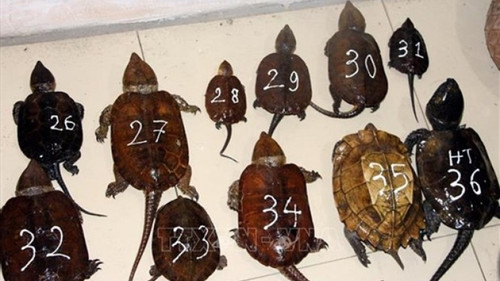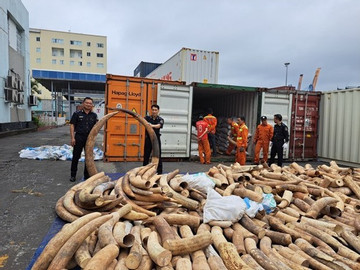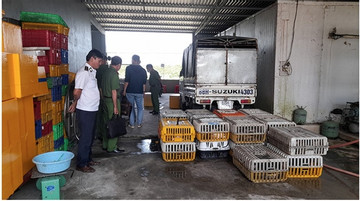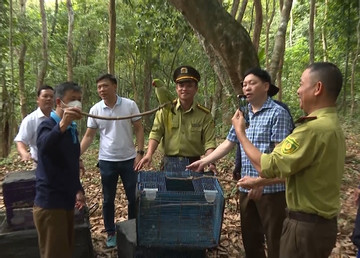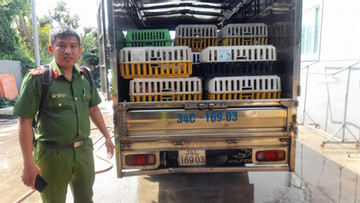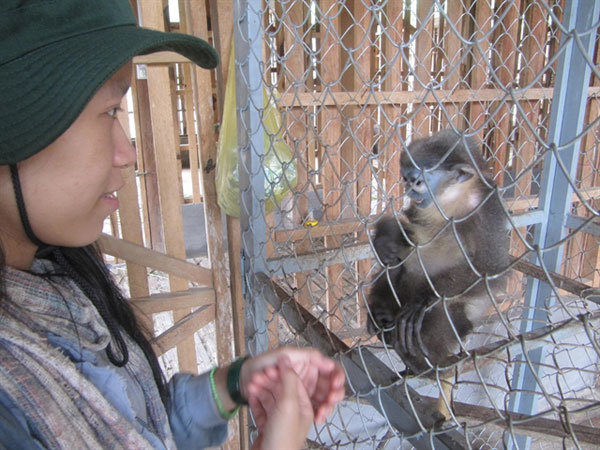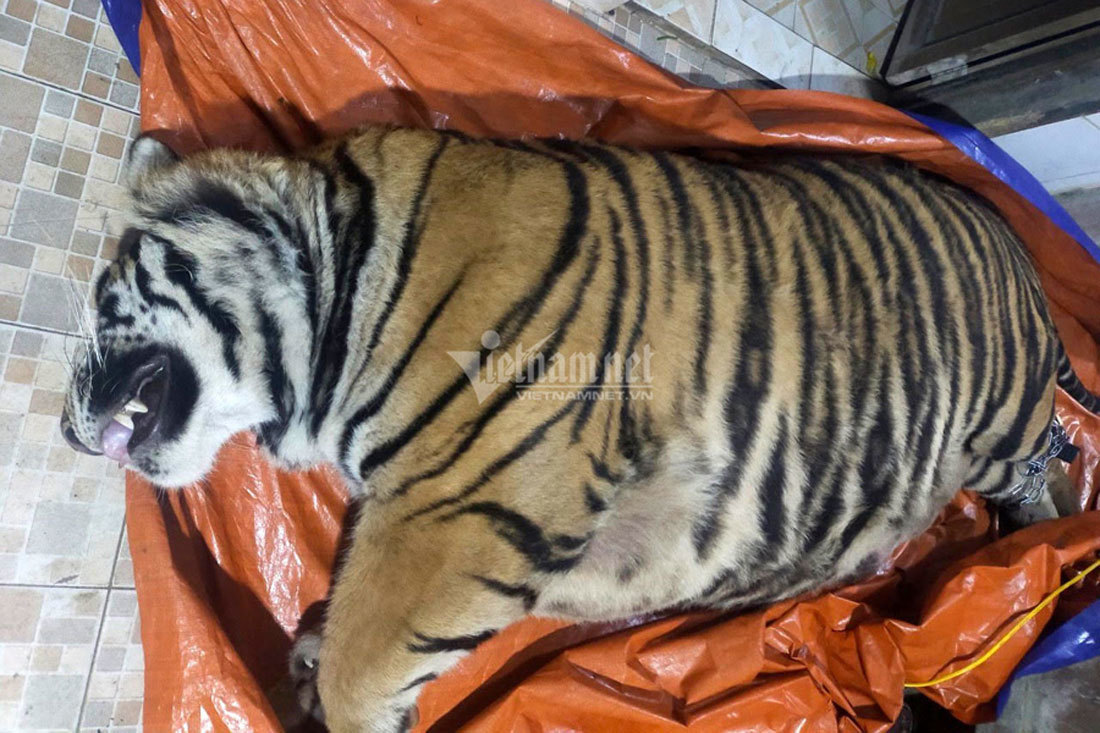- © Copyright of Vietnamnet Global.
- Tel: 024 3772 7988 Fax: (024) 37722734
- Email: [email protected]
wildlife trafficking
Update news wildlife trafficking
Two man arrested for smuggling endangered species
Police in the central province of Nghe An have detained two man for illegal transporting endangered, precious and rare animals in large quantities.
Record haul of smuggled ivory seized in northern port city
Task forces in the northern port city of Hai Phong seized about 7 tonnes of tusks hidden in a container arriving at Nam Dinh Vu Port from Africa on March 20, according to the General Department of Customs.
More than a tonne of frozen cats found in southern province
Upon questioning, the 39-year-old owner admitted collecting the cats from various provinces in the Mekong Delta region.
Vietnam takes drastic action to combat wildlife trafficking and protect biodiversity
Statistics from the Forest Protection Department show that the number of violations related to wildlife across the nation decreased by 147 cases per year from 2018-2022 compared to 2013-2017.
Tonnes of cat meat of unclear origin found at Dong Thap slaughterhouse
Police in the southern province of Dong Thap have found four tonnes of frozen cat meat and hundreds of live cats without clear origin being kept at a local slaughterhouse.
US, Vietnam to counter wildlife trafficking through sea ports
The growing demand for endangered, exotic, and protected wildlife drives a global illegal market, valued at more than US$20 billion per year.
Hai Phong: More ivory seized at Lach Huyen port
Another batch of smuggled ivory was found at Lach Huyen international port in the northern city of Hai Phong on February 6, the second of its kind within seven days.
Cross-border wildlife trafficking discovered in An Giang
Border guards of the Mekong Delta province of An Giang that borders Cambodia has reported it has detected a case of wildlife trafficking.
Wildlife conservation: Risks and efforts
According to the Wildlife Conservation Society (WCS), in the period from 2013-2017, Vietnam recorded 1,504 wildlife rule violations involving 1,461 suspects.
Illegal wildlife trade cracked down nationwide
Law enforcement agencies have heeded the call of 14 NGOs working in nature and wildlife conservation and begun cracking down on the illegal wildlife trade at the Thanh Hoa Farmers Market in southern Long An Province.
Vietnamese public support closing wildlife markets and ending deforestation
The Vietnamese public is overwhelmingly in favour of the closure of high-risk markets selling animals coming from the wild, a survey has found.
Wildlife trafficking in Vietnam remains complex: report
Wildlife trafficking in Vietnam remains complicated both before and during COVID-19, a report released on June 18 by the People and Nature Reconciliation (PanNature) non-profit organisation showed.
Man jailed for storing 780 kg of African pangolin scales
The People’s Court of northern Hung Yen Province on June 2 sentenced a man to five years and three months in jail for storing 780 kg of pangolin scales - a type of banned goods
Vietnam hands over rhino horn DNA samples to South Africa
The Vietnam CITES Management Authority and the Institute of Ecology and Biological Resources handed over 56 rhino horn DNA samples to the South African Embassy in Vietnam on June 1.
Largest-ever pangolin scale smuggling ring busted in Hanoi
Police forces in Hanoi claimed on May 19 to have broken up the largest pangolin scale smuggling ring ever detected in Vietnam.
Traffickers in tigers pays heavy price for illegal activities
Despite ironclad moves taken by appropriate agencies, the trafficking and illegal transport of tigers to make tiger bone glue remains a burning issue in Vietnam.
Three ivory traffickers sentenced to 32 years in jail
 Hanoi People’s Court on Thursday sentenced three men to a total of 32 years in jail for trading over 200kg of ivory from African elephants – an endangered species.
Hanoi People’s Court on Thursday sentenced three men to a total of 32 years in jail for trading over 200kg of ivory from African elephants – an endangered species.
Nghe An police uncover wildlife trafficking ring from Lao to Vietnam
Police in the central province of Nghe An on Tuesday seized a man carrying dozens of animals which were allegedly smuggled from Laos to Vietnam for consumption in Chau Binh Commune, in the province’s Quy Chau District.
Man imprisoned for trafficking rhino horns
 The Hanoi People’s Court on June 1 sentenced Nguyen Van Pho to five years in prison for violating regulations on the protection of endangered, precious and rare animals.
The Hanoi People’s Court on June 1 sentenced Nguyen Van Pho to five years in prison for violating regulations on the protection of endangered, precious and rare animals.
Wildlife markets sell birds with phony legal documentation
 Wildlife traders reveal that most of the wild animals sold at markets are from the wild, but their documents say the birds are from farms raising animals for commercial purposes.
Wildlife traders reveal that most of the wild animals sold at markets are from the wild, but their documents say the birds are from farms raising animals for commercial purposes.
